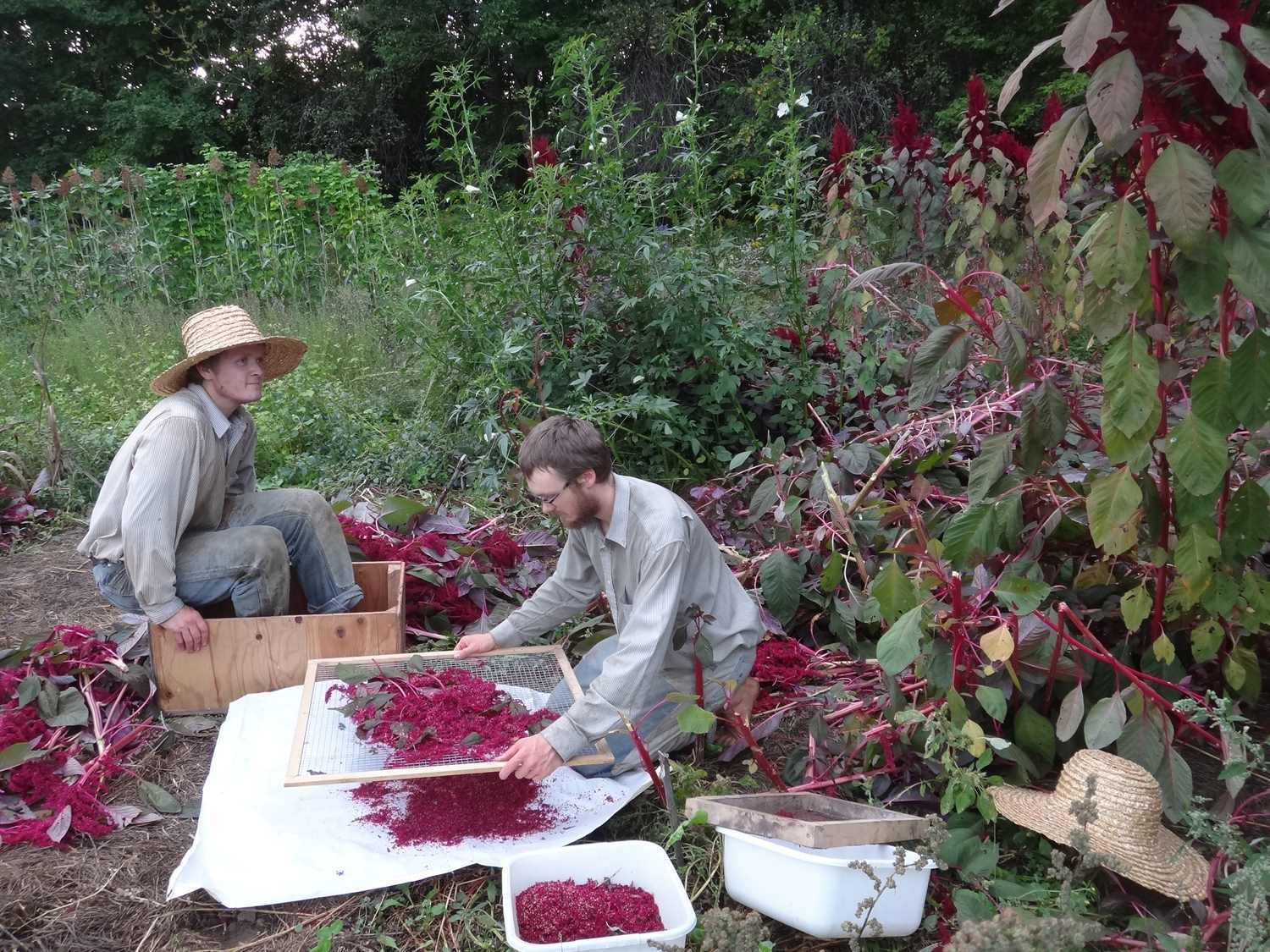January 17thCalled to Embrace a New Way
Between Clifford and Mildmay in Ontario is a 100-acre farm nestled into the countryside. This time of year, the trees are bursting with their bright fall colours of red, yellow and orange. Here you will find Andre Wiederkehr, his parents and his brother hard at work and farming in a way that may surprise many people.
“The most basic commandment is to love God with all your heart and soul and mind, and to love your neighbour as yourself. I think of the term ‘neighbour’ very broadly, not just human neighbours but also all the other living things around us and those who will come after us,” says Andre. “We’ve built our whole society on wrong assumptions in a lot of ways. I don’t think that the current system in which we as a society function can last. To be loving is to reimagine those life supporting systems we are surrounded with and try to find ways and systems that are healthy and loving in the long term.”

These changes come as a result of deep re-evaluation of practices and ideas they once took for granted, a difficult and disorienting process.
There is a hum across the farm as Andre works in new (or old) ways toward a sustainable way of life. The Wiederkehrs are moving away from tractor-powered farming toward producing food in large gardens using human power. The firewood they once cut by chainsaw they now cut with a handsaw or axe. They increasingly cook on wood or solar stoves. They are learning about processing flax into cloth and exploring how to build in sustainable ways. These changes come as a result of deep re-evaluation of practices and ideas they once took for granted, a difficult and disorienting process.
Andre does not choose this lifestyle because it naturally appeals to him or fits his interests. “I don’t particularly enjoy a lot of the work for the sake of the work. It can be quite a slog,” he says. “Being out in the field dragging a harrow around trying to plant small grains by hand or sitting on the bike-powered thresher for hours - those things are not things that I particularly enjoy doing. However, I think its part of a larger vision of what I feel we all need to do. I need to share what I’m doing and have it spread to others.”
Theology should be done in community. It’s important for me to be connected to the church, especially as I’ve been undergoing these changes in perspective.
Andre has also focused on transportation over the past number of years. He gave up his driver’s license two years ago and has not been in a car for over a year. His family attends Hanover Mennonite Church, which is 23 kilometers from their home. He says, “That’s not very far when you use a car but when I bike that distance it feels a lot less close than it used to!”

The Gospel story is an embodied one. It’s about incarnation - God coming and living with us,” concludes Andre. “I think it’s important to be thinking of our faith as an embodied faith. We are not just spiritual beings with physical bodies for now, but we are physical creatures. Environmental responsibility is a core understanding of faith. We are called to be people - creatures who do simple work in partnership with the rest of creation.”